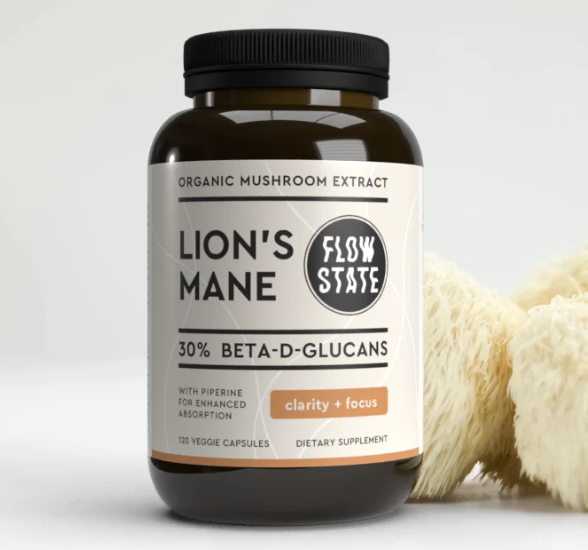Lion’s Mane Mushroom is a type of mushroom that grows on hardwood trees. This mushroom has been used as a medicinal herb in Asian countries for centuries. It is also known as Yamabushitake, Satyr’s Beard, or Monkey’s Head Mushroom.
Lion’s Mushroom contains compounds called hericenones and erinacines, which have antioxidant and anti-inflammatory properties. These compounds have been shown to reduce inflammation in the body, protect against oxidative damage and improve nerve function.
There are a lot of different reasons to eat mushrooms, but one of the most popular is their ability to improve brain function and mental clarity. Mane Mushroom is an incredible mushroom that has been shown to help with depression, anxiety, memory loss, and much more. Here are 10 incredible health benefits of Lion’s Mane Mushroom:
- Boosts Your Immune System
The main reason why this mushroom is so beneficial for our health is because it contains several antioxidant compounds that have antibacterial and antiviral properties. These antioxidants help boost your immune system by fighting off infections and reducing inflammation caused by chronic illnesses like arthritis or Crohn’s disease.
- Improves Brain Function
The erinacines found in the Lion’s Mane help stimulate the production of NGF (nerve growth factor), which is needed to produce new brain cells and promote learning ability. They also support memory, learning ability, and concentration levels.
- Improves Memory Function
Lion’s Mane helps improve memory function by stimulating the body’s nerve growth factor (NGF). NGF helps with memory retention and restores damaged neurons (brain cells). This makes this mushroom perfect for those suffering from Alzheimer’s disease or other cognitive disorders where memory loss is an issue.
- Improve Your Mood
Lion’s mushroom is one of the only mushrooms that contain serotonin, a neurotransmitter that helps regulate mood and sleep. Serotonin is often called the “feel-good” hormone because it can boost your mood and help you relax when you’re feeling anxious or stressed out.
- Fights Cancer Cells
Lion’s mushroom has long been used in traditional Chinese medicine for its anticancer properties. In fact, studies suggest that this fungus may be able to kill cancer cells by causing them to self-destruct (apoptosis). It also appears to reduce inflammation in the body, which could slow down tumor growth.
- May Reduce Anxiety & Depression
The lion’s mane mushroom contains a nerve growth factor (NGF), which helps support the growth of neurons in the brain. NGF also helps reduce depression, anxiety, and cognitive decline. In fact, studies show that consuming 2 grams of lion’s mane per day for 12 weeks can help improve symptoms of depression and anxiety in humans.
- Prevent Stroke Or Heart Attack
Lion’s mushroom may help protect against brain damage caused by stroke or heart attack because it’s rich in antioxidants called erinacines and hericenones, which may reduce inflammation in the brain and increase blood flow to the area. Animal studies suggest that this can protect against some types of brain damage caused by stroke or heart attack.
- Decreased Inflammation
Lions Mane also contains sterols that have anti-inflammatory properties and can reduce oxidative stress in the body. This allows for better immune system functioning, which helps to fight off viruses and other pathogens that cause inflammation throughout the body.
- Aids Digestion
Lion’s mushrooms are thought to help with digestive problems such as bloating, constipation, diarrhea, and stomach pain. They are also thought to help reduce inflammation in the intestines and pancreas, which can help reduce symptoms such as gas and cramping.
- Improve Cognitive Functioning
Lion’s mushroom can also improve cognitive functioning by reducing age-related memory loss and improving cognitive performance in people with Alzheimer’s disease, Parkinson’s disease, or dementia (1). This happens because this fungus contains compounds called beta-glucans that help improve blood flow to the brain (2). These compounds also have anti-inflammatory properties that reduce damage to brain cells caused by free radicals (3).
Conclusion:
If you’re looking for a superfood, look no further than the lion’s mane mushroom. This fungus is one of the most powerful medicinal mushrooms and has been used in Chinese traditional medicine for thousands of years. In case you’ve been wondering, this is just one of the many exciting health benefits associated with Lion’s Mane. And if you’re a big fan of mushrooms (and who isn’t?), this is a great food to check off your list. It may not taste like much when it’s being cooked, but for your health, you should definitely be eating this one often.

